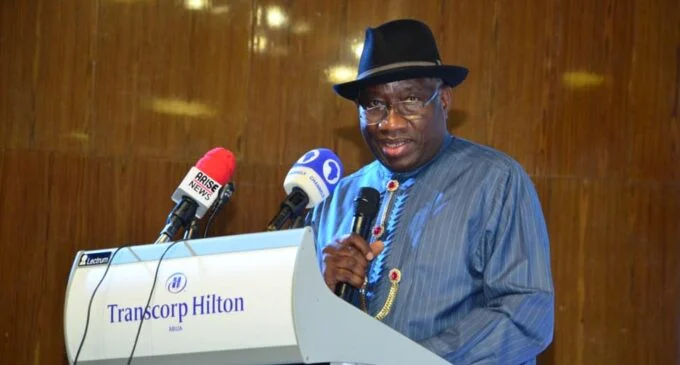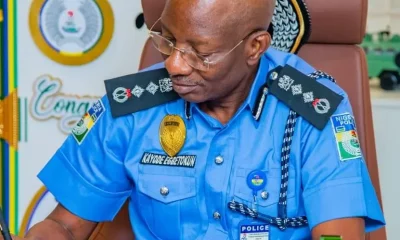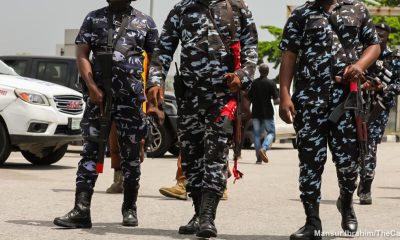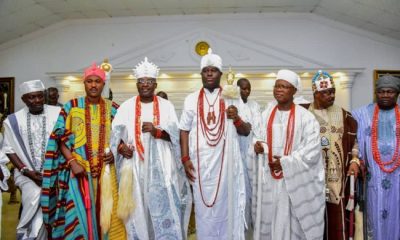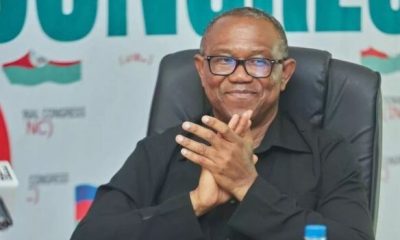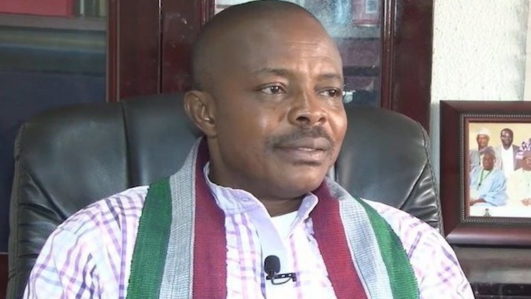Former President Goodluck Jonathan says the state police is crucial to addressing the challenge of insecurity in the country.
Jonathan spoke in Abuja on Monday at a national security dialogue organised by the house of representatives.
The former president said the state police should be established on a framework that makes it difficult to be abused.
“The issue today is very critical. One thing is that we don’t need to debate whether we should have state police or not. I think that matter has been concluded. The issue is the operations of the police,” Jonathan said.
He said security in Bayelsa was epileptic in the late 90s, noting that it was a security architecture in the form of state police that salvaged the situation.
“So there is no way we can manage internal security if states would not have their police,” he added.
The former president said the concern is how state police would freely operate without the interference and control of governors and other actors.
“But how would the state police function vis-á-vis the national security architecture,” he asked.
“When I set up the 2014 national dialogue, during that period we had lots of challenges in the country.
“People were agitating so many areas but one thing that the almost 500 (people) agreed without much ado was the issue of state police.”
Jonathan said state police is not new to the country as it was practised during the military regime.
“You know in this country, we operated it before. Why is it that the military scrapped it? It was because of the abuse and that is the area we should concentrate on,” he said.
“How do we manage the state police so it would not be abused by state political actors?
“If state political actors are abusing the state police and using the state police to harass and make life miserable for people who do not belong to their political parties, would the commander-in-chief sit down and watch or would he order the military to go and overrun the state police? Of course, that would bring crisis.”
Jonathan said the state police should be designed in a way that will not make it clash with the national security architecture of the country.
“These things need to be done carefully,” he said.
“So, if we are talking about state police, we must also rejig INEC and the police must not be used against or to the advantage of any political party.”
He advocated that the conduct of elections should be improved to require minimal participation of the police.
“So, the national assembly needs to look into all these. These are the areas that we have to concentrate on,” he said.
“The issue of the need for states to have their own police is not negotiable. There is no way we can continue this kidnapping that is going on in this country.
“Commercial kidnapping started around 2006, I don’t want to go into that history. But it started in the Niger Delta. Now it is all over the country.
“The only thing that can help us if we cannot stop it completely at least we reduce it to the barest minimum is for states to have their police.”
Jonathan said the state police must be well equipped with sophisticated weapons to be able to combat aggression from criminals.
“Sometimes people say the state police should have limited weapons, that the calibre of weapons they should have should be limited. That is an area that must also be cleared, we must be careful with it,” he said.
“I am not expecting states to have rockets and missiles, but the conventional weapons if you look at the calibre of weapons criminals use, the states must have superior weapons or at least equal.
“If you make the state (police) have weapons that are inferior to the ones that the criminals are using, then you are asking them to commit suicide in the field.
“So we must not even go there in terms of limiting the capacity of the state police. A state that has enough resources must equip the police very well and that state can also assist other states that have challenges.”
Also speaking, Vice-President Kashim Shettima said the federal government would support the consensus of the dialogue.
“The president is committed to listening to your recommendations and insights invariable to share in the policies that would lead us to a more secure and good society,” Shettima said.
On his part, Abdulsalami Abubakar, former head of state, harped on the need for the government to be transparent, honest, and accountable to citizens.
Abubakar said there should critical discussion on how the state police would operate.

 News3 years ago
News3 years ago
 Entertainment2 years ago
Entertainment2 years ago
 News3 years ago
News3 years ago
 Privacy3 years ago
Privacy3 years ago
 Sports2 years ago
Sports2 years ago
 Entertainment2 years ago
Entertainment2 years ago
 News3 years ago
News3 years ago
 Opinion3 years ago
Opinion3 years ago
